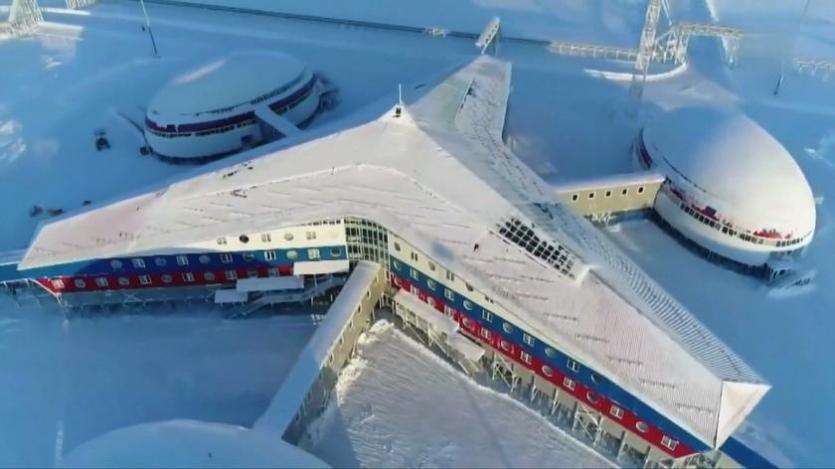View of the base on the island of Alexandra Land in the Franz Josef Archipelago. Photo:ENEX
The World Daily | News Desk JUNE 3rd 2021
Russia's policy in the Arctic is an integral part of the overall confrontation with the West, experts from the Carnegie Moscow Centre think tank emphasized in the analysis. The Kremlin is strengthening its military presence in the region and intends to implement ambitious economic plans there.
The Russian agency RIA Novosti informed us about the strengthening of the Russian air group in the Arctic in order - as reported - to "stop the expansion of NATO". Currently, not only fighters are stationed in the region, but also multi-role Su-34 bombers, deployed from the Chelyabinsk region. The Ministry of Defence in Moscow reported that bombers made about twenty flights in the Arctic, crews practiced patrolling the Arctic zone, navigating tasks and manoeuvring over the water surface.
According to RIA Nowosti, full exploitation of machines has become possible relatively recently, after the reconstruction of the airport network in the Arctic zone. One of the military pilots explained to journalists that the North Pole is the shortest route from Canada and the US to Russia and that if a conflict suddenly broke out, attacks could come from that side.
Russia is therefore preparing to repel these hypothetical attacks by expanding and strengthening its military infrastructure in the Arctic zone. In recent years, among other things, several runways have been reconstructed and a new Nagurskoye airport in the Alexandra Land in the Franz Josef Land archipelago was built. Planes can land there all year round.
A show of strength for journalists from NATO countries
Russia explains the expansion of its military infrastructure in the Arctic by the need to protect its own borders. It recently organized a demonstration of military force in the presence of a group of Western journalists, including from NATO countries, presenting the Bastion anti-ship defence systems armed with Onyx missiles.
Sarah Rainsford, a Moscow correspondent for the BBC, heard from the commander of the Russian Northern Fleet that Russia's efforts were due to the fact that NATO and US military operations in the region were "definitely provocative, on a scale unprecedented since the Second World War."
The Russian defence ministry showed Western journalists the Arctic Clover base, also built on Alexandra Land. They got there on board the Il-76 transport plane. The flight from Murmansk took over two hours. The base itself, located in a place where temperatures in winter fall even below 50 degrees Celsius and soldiers have to keep polar bears from approaching the facility, are decorated in the colours of the Russian flag.






